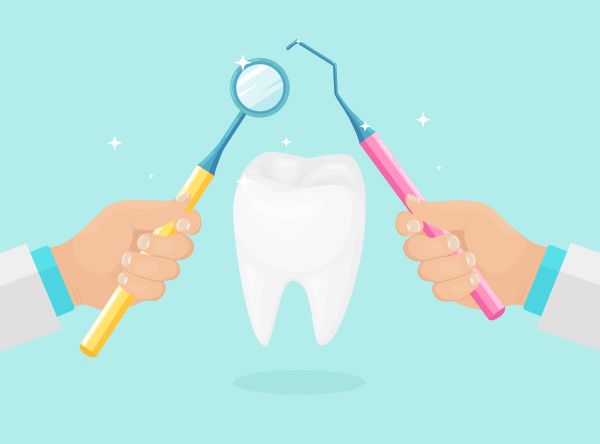Do Dental Implants Require Oral Surgery?

Many patients might shy away from oral surgery, but when it comes to dental implants the procedure is fairly straightforward. The experience of losing a tooth is far more unpleasant and painful than the oral surgery that serves to fix the issue. Although the dental implant procedure is in fact a surgery, it can welcome an alternative to other temporary, less invasive options.
Dental implants are the most effective and durable tooth replacement method across the board. The reason why they are so long-lasting and dependable is because they are surgically inserted into the jawbone. Other removable tooth replacement options like dentures and bridgework may be less invasive and not require surgery, but this also means they are not as secure.
Dental implant surgery to save your jawbone
Implants are the only tooth replacement option that preserves and builds up the jawbone rather than letting it deteriorate. When a tooth is lost, the jawbone immediately begins to disintegrate due to disuse. Partial dentures and bridgework gain support from the gums and other remaining teeth, not the jaw. These options do not use the jawbone, and so the bone shrinks away until it is too porous and broken down to support much of anything.
As the bone deteriorates, other teeth can be lost. Oral health takes a hit, and bacteria is a big threat to the gum tissue and jaw.
How does dental implant surgery work?
The oral surgeon takes every precaution to make sure that the surgery is a success. After determining that the oral health of the patient is optimal, with no other issues other than the missing tooth, the surgery proceeds. An impression is taken of the mouth to create a custom crown.
An anesthetic agent will be administered, to be determined by the surgeon. First, the oral surgeon will clean and prepare the area. The post (the screw-like artificial root of the implant) is then inserted into the jawbone below the gumline. Atop the post, the abutment (the connector peg) sits just above the gumline. Once the post is secure, the temporary crown is placed on the abutment and the surgery is complete.
The custom crown is created in the lab. There is a short healing period of about 6 months where the temporary crown will be used until the custom crown is ready to be placed. After these short months, the jaw has completely healed around the post, and the permanent crown is ready.
Just like that, you have a new tooth that appears and functions like a natural tooth. Maintenance after the surgery is low - as long as you keep the area clean and follow all instructions from your oral surgeon.
The oral surgery related to dental implants is generally mild, with no surprises. The surgery takes around 1-2 hours from start to finish. Very little pain is associated with the recovery period after dental implant surgery. The surgeon may prescribe painkillers, but over-the-counter painkillers like ibuprofen should work just as well.
If you have questions then reach out to us today so that we can help you further.
Request an appointment here: https://smilesdental.com or call Smiles Dental Care at (650) 563-1180 for an appointment in our Mountain View office.
Check out what others are saying about our services on Yelp: Read our Yelp reviews.
Recent Posts
Do you think your wisdom teeth may need to be removed? Wisdom teeth extraction, whether complete or partial, is a standard procedure that comes by recommendation of a dentist. Sometimes, it could be because they were coming in crooked or placing too much strain on your jaw or neighboring teeth. If you have undergone a…
An in-office professional dental cleaning is a crucial aspect of maintaining good oral health. While oral hygiene done at home is a great way to keep the teeth and gums healthy, it is important to see a general dentist on a regular basis for cleanings and examinations. Dental cleanings are simple, easy, and relatively painless,…
In general dentistry, cracked teeth are, unfortunately, a common problem that requires attention. Thankfully, modern-day dentistry has created a few different options that can solve the problem of a cracked tooth. In most situations, a general dentist can salvage a cracked tooth; however, it is important to know that there are a few factors that…
Dental implant surgery involves the replacement of missing teeth with a surgically inserted metal post. This oral surgery is becoming increasingly popular every passing day. If you are considering dental implants, you will need oral surgery. You should prepare early for the procedures that may be involved.A patient may need oral surgery to resolve problems…


